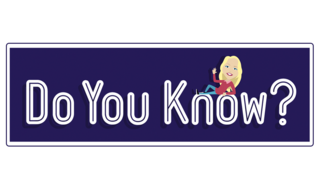It's my own children and the TV box in the corner of my living room helping me out again...
My toddlers and I have recently discovered 'Do You Know' on CBeebies. "Join Maddie as she finds out how things work."
As it is on the CBeebies Channel, it is aimed at toddlers, much younger than most of the primary age group. But, it's still largely appropriate. Maddie covers technical aspects of aeroplane flight, how plant pots are made, friction on a slide and more. It is a fine balance between being technical and factual, much of which goes over my chidlren's heads, whilst also being engaging to very young children. Primary age pupils will 'get' the factual information and be mostly still engaged by the child-friendly format of the show.
I have used them as an opportunity to add to our general learning by playing some at the start or end of the day or between lessons. But, they can be useful in lessons - the playground program in science when learning about friction for example.







